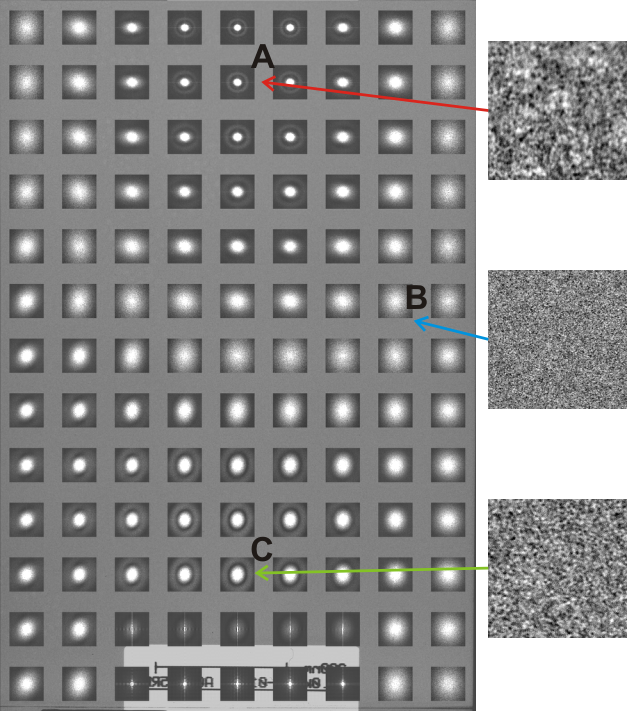|
Size: 984
Comment:
|
← Revision 13 as of 2009-04-22 14:42:55 ⇥
Size: 1013
Comment:
|
| Deletions are marked like this. | Additions are marked like this. |
| Line 1: | Line 1: |
| Q) In this (scanned from film) image, what are the weird looking Fourier tiles indicative of? Also, should this question be in the EMAN2 section? I think that that region labelled B is normal but that A and C are strange, maybe film warping? I am using a Nikon super coolscan 8000 ED there is no mechanism for holding the film flat. | Q) In this (scanned from film) image, what are the weird looking Fourier tiles indicative of? Also, should this question be in the EMAN2 section? I think that that region labelled B is normal but that A and C are strange, maybe film warping? I am using a Nikon super coolscan 8000 ED with a glassless holder, and there is no mechanism for holding the film flat. |
Q) In this (scanned from film) image, what are the weird looking Fourier tiles indicative of? Also, should this question be in the EMAN2 section? I think that that region labelled B is normal but that A and C are strange, maybe film warping? I am using a Nikon super coolscan 8000 ED with a glassless holder, and there is no mechanism for holding the film flat.

A) Very nice example of warped film in the scanner. You are seeing the MTF of the scanner lens when out of focus. This data may still be usable with sufficient averaging (ie - if you average by ~2, you will push the first ring in the MTF to almost Nyquist). This is exactly the sort of effect e2scannereval.py is designed to detect. Note that in the middle of the image the scanner is fairly well focused. The variations give you a feel for how the film is warped.
Note that when we use a Nikon scanner, we now use a modified glass holder: Instruments/NikonScanner which solves the flatness problem.
